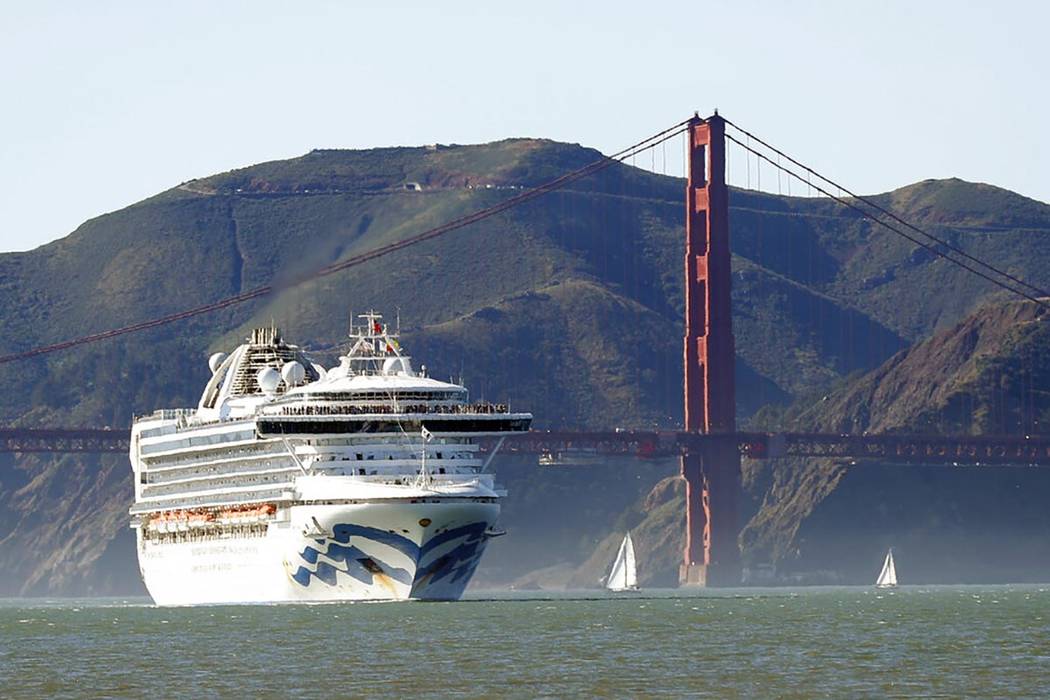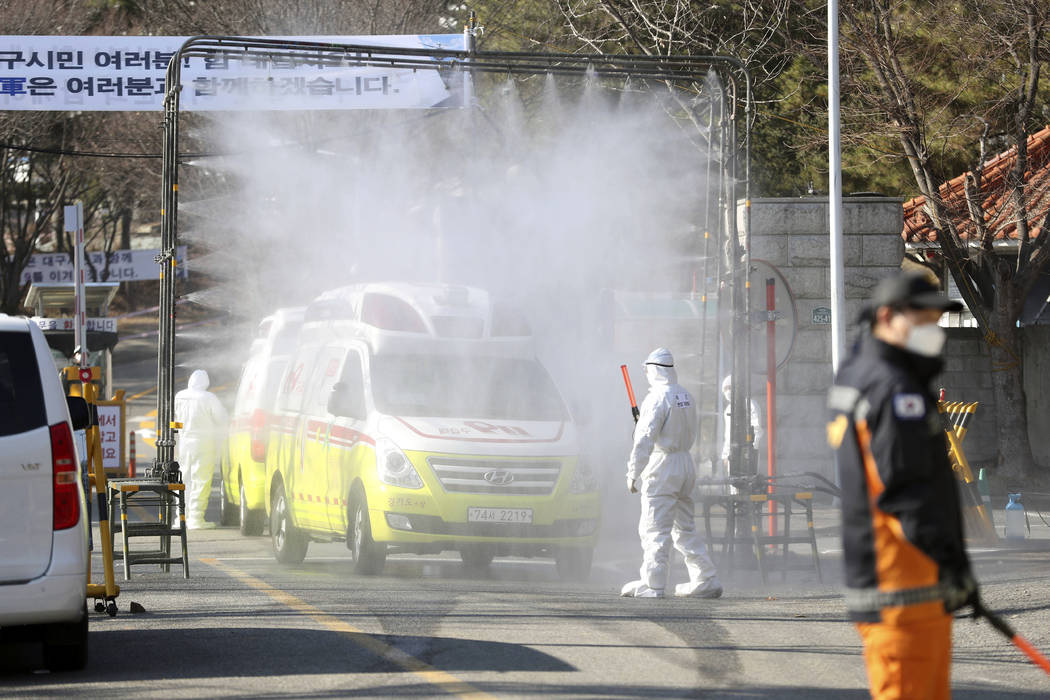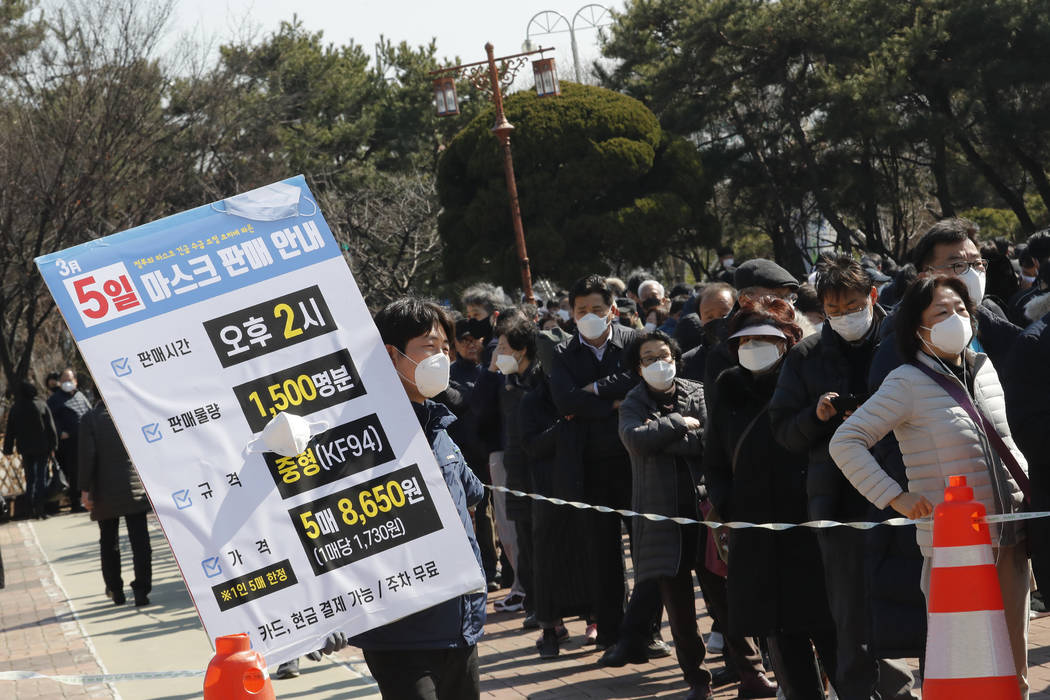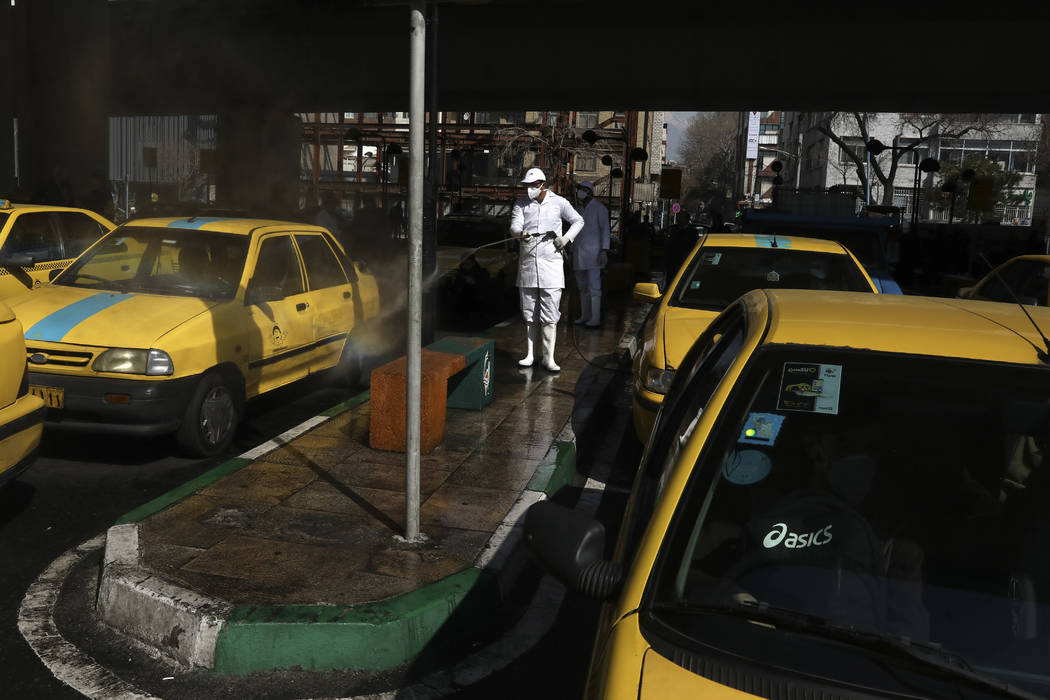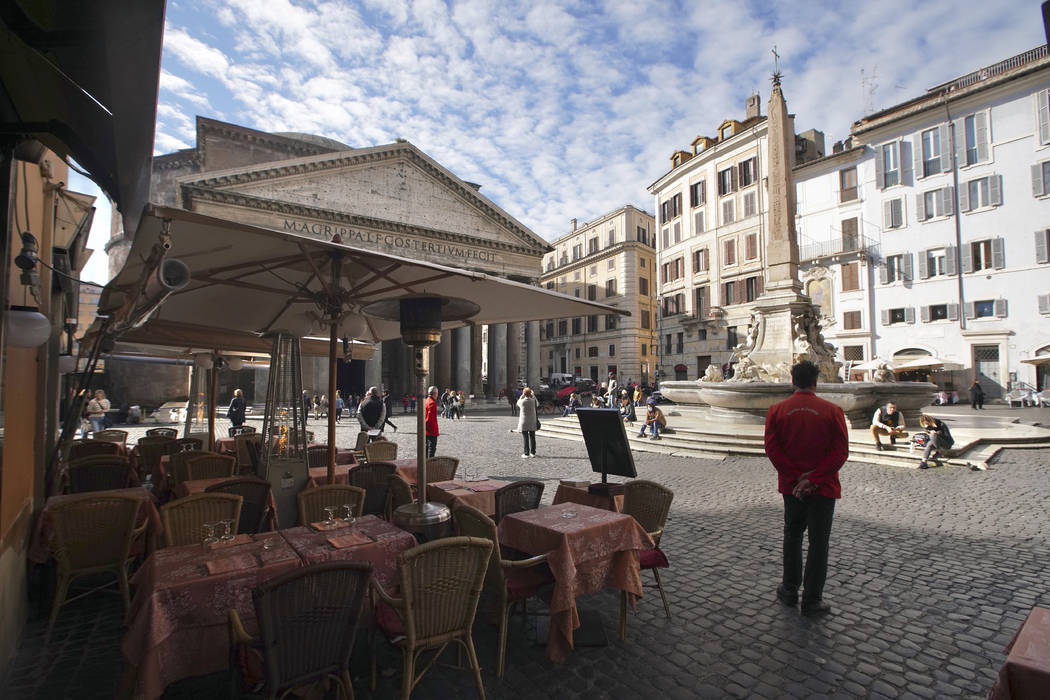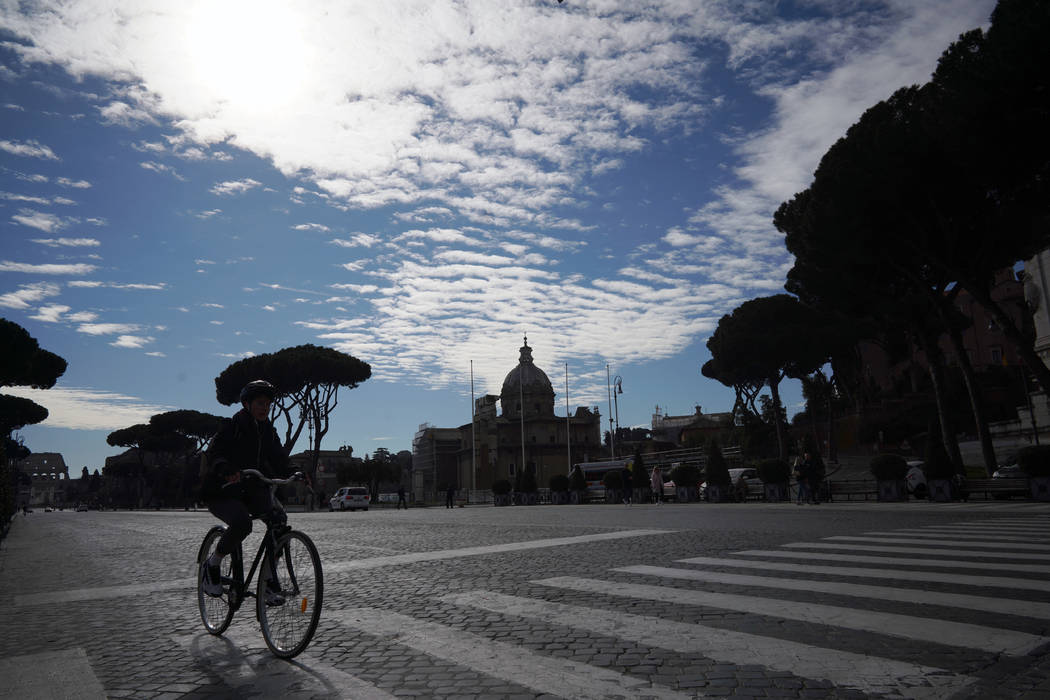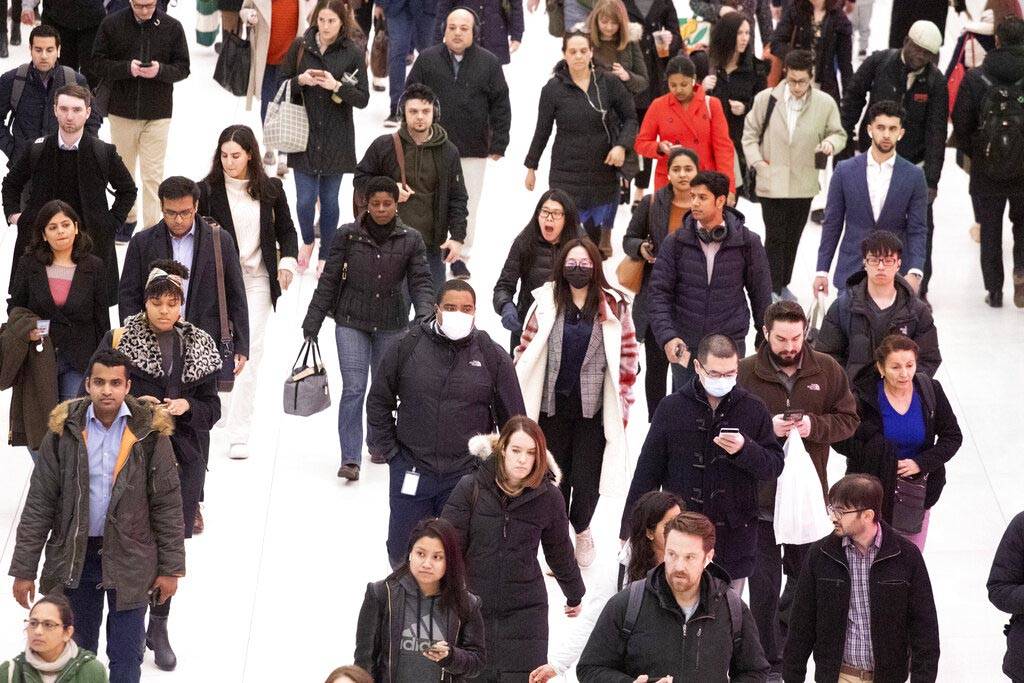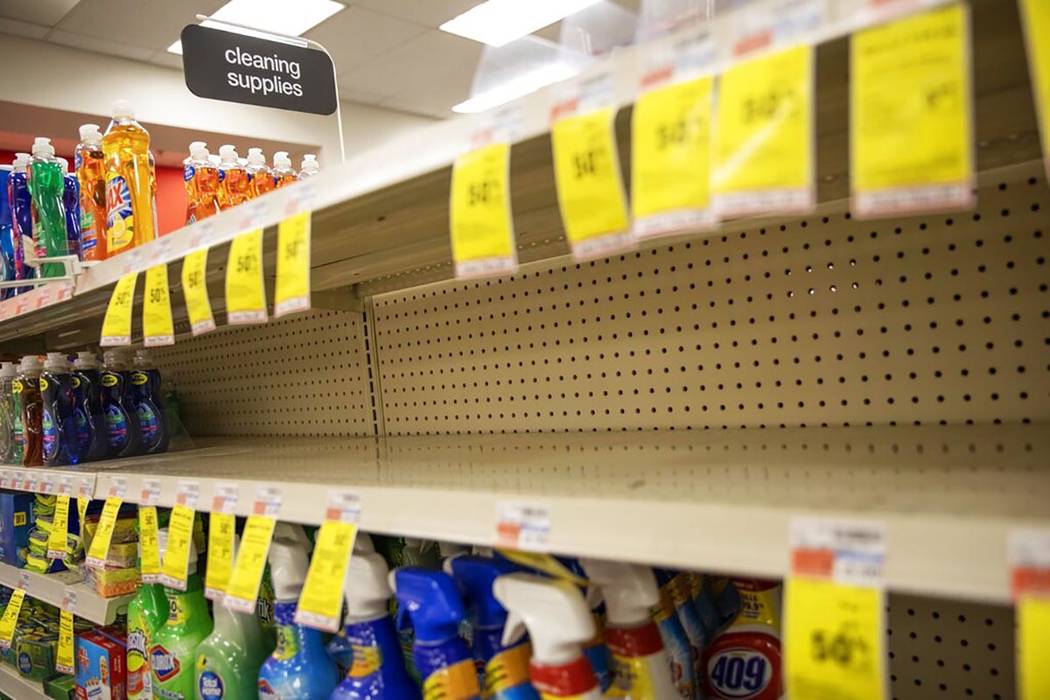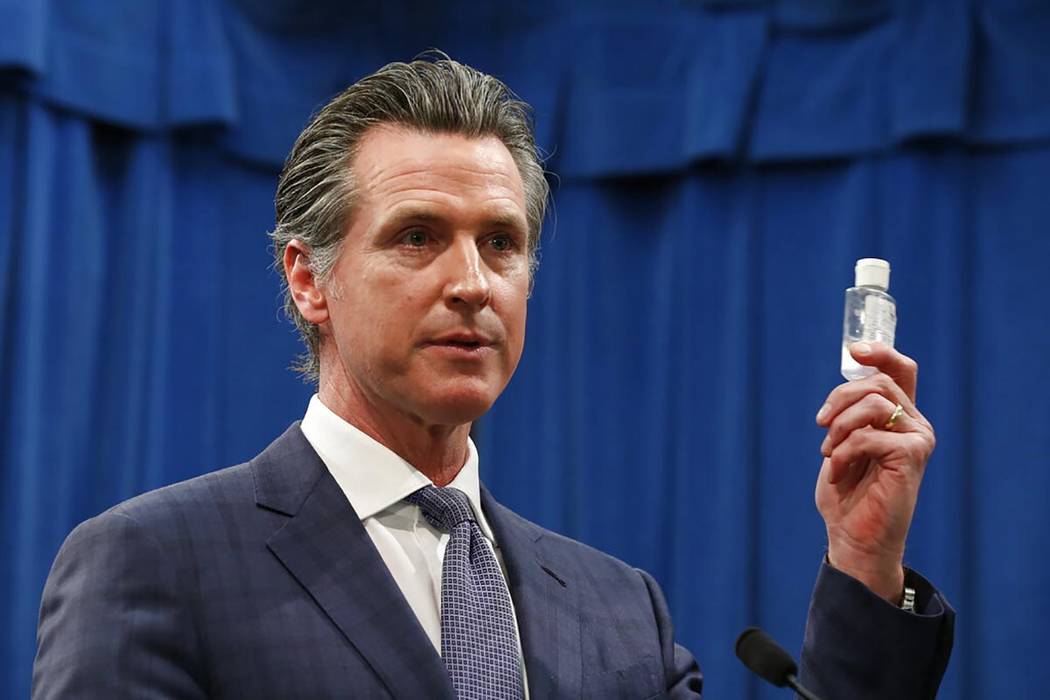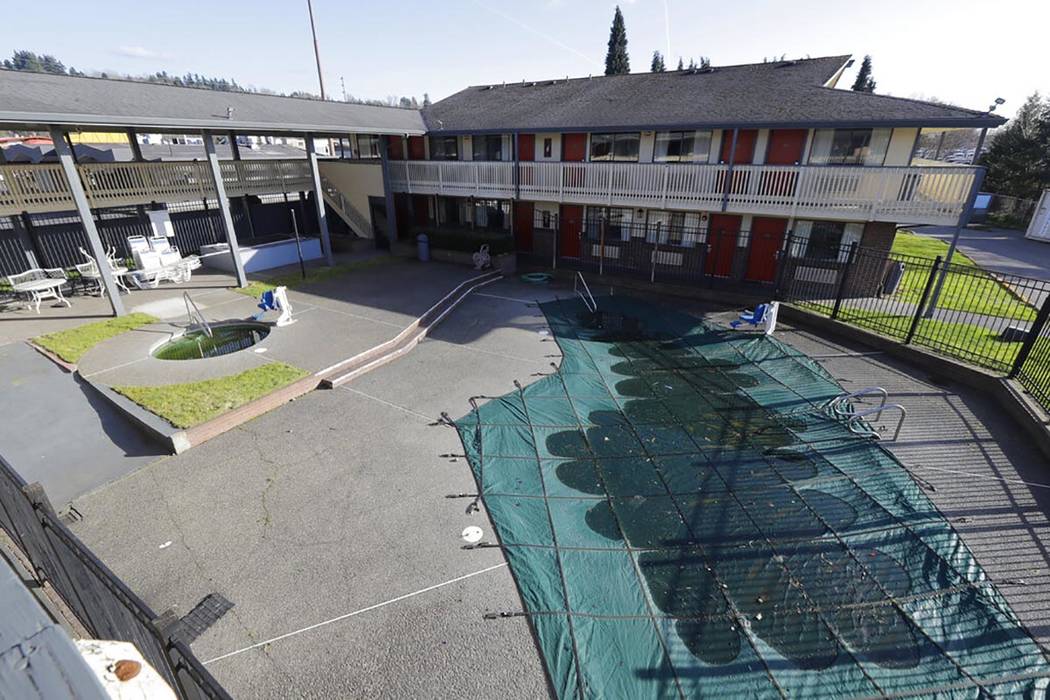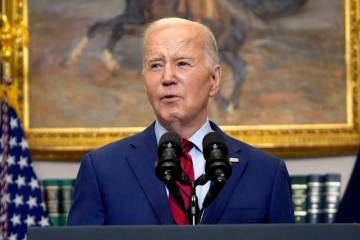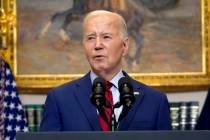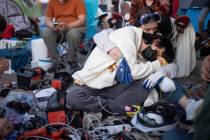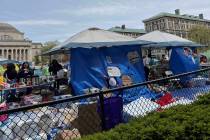World advised fight against expanding coronavirus will take months
BANGKOK — The global march of the new virus triggered a vigorous appeal Thursday from the World Health Organization for governments to pull out “all the stops” to slow the epidemic that has drained color from India’s spring festivities, closed Bethlehem’s Nativity Church and blocked Italians from visiting elderly relatives in nursing homes.
As China, after many arduous weeks, appeared to be winning its epic, costly battle against the new virus, the fight was just revving up in newly affected areas of the globe, unleashing disruptions that profoundly impacted billions of people.
The U.N. health agency urged all countries to “push this virus back,” a call to action reinforced by figures showing there are now about 17 times as many new infections outside China as in it. To date, the virus has infected nearly 97,000 people and killed over 3,300.
“This is not a drill. This is not the time for giving up. This is not a time of for excuses. This is a time for pulling out all the stops,” WHO Director-General Tedros Adhanom Ghebreyesus said at a daily briefing in Geneva. “Countries have been planning for scenarios like this for decades. Now is the time to act on those plans.”
There are about 17 times as many new infections outside China as in it, WHO said, with widening outbreaks in South Korea, Italy and Iran responsible for a majority.
“The virus doesn’t care about race and belief or color. It is attacking us all, equally,” said Ian MacKay, who studies viruses at the University of Queensland in Australia. “We’re looking at a pandemic in all practical reality.”
As of 11 a.m. Pacific time Thursday, there were 97,841 confirmed cases and 3,347 deaths, according to the Johns Hopkins CCSE website. Nations with more than 1,000 cases included China, South Korea, Italy and Iran. The United States was reporting 11 deaths and 176 cases, although new cases were being reported Thursday morning, including one in Las Vegas.
In the United States, hundreds of people were placed in self-quarantines due to cases in a New York suburb. A school district north of Seattle with 22,000 students announced it will close for up to two weeks because of coronavirus concerns.
Cruise passengers held off California for testing
Scrambling to keep the coronavirus at bay, officials ordered a cruise ship to hold off the California coast Thursday to await testing of those aboard, after a passenger on an earlier voyage died and at least one other became infected.
A Coast Guard helicopter was expected to deliver test kits to the Grand Princess once it reached the waters off San Francisco later in the day. Princess Cruises did not immediately disclose how many people were aboard the vessel — which has a capacity of 3,650 passengers and crew — but said fewer than 100 had been identified for testing.
“The ship will not come on shore until we appropriately assess the passengers,” California Gov. Gavin Newsom said.
On Wednesday, Newsom declared a state of emergency over the virus, opening the way for federal aid, after the death of a man in Placer County, near Sacramento, who had been on an earlier sailing of the ship in February.
It was the nation’s first coronavirus death outside of Washington state and brought the U.S. death toll to 11, with most of the victims from a suburban Seattle nursing home.
Back down goes the U.S. stock market
Major indexes lost roughly 3% in afternoon trading Thursday, and Treasury yields sank deeper toward more record lows in their latest yo-yo move. The slide nearly wiped out the surge that stocks had ridden just a day earlier, in part on hopes that more aggressive moves by governments and central banks around the world could help contain the economic fallout.
These vicious swings are likely only to continue, as long as the number of new infections continues to accelerate, many analysts and professional investors say. The S&P 500 is on track to move more than 2% a fourth straight day, the first time that would have happened since the summer of 2011.
The growing understanding that the spread of infections may not slow anytime soon is pulling sharply on markets. That pull has taken turns this week with the increasingly worldwide push that governments and central banks are trying to give markets through spending plans and interest-rate cuts.
In China, where the number of new infections has been slowing drastically, Shanghai-traded stocks have rallied nearly 12% since hitting a bottom on Feb. 3. They’re just 1.6% away from wiping out the last of the losses they’ve sustained since the new virus began to spread late last year.
2 states report first cases
New Jersey’s first positive test for the new coronavirus came from a 32-year-old man from Fort Lee, the community’s mayor said Thursday.
Mayor Mark Sokolich’s office said in an statement that officials are still waiting on conformation from the Centers for Disease Control and Prevention. Gov. Phil Murphy said Wednesday that the unidentified patient is at a Bergen County hospital.
Local and state health officials are tracing the man’s contacts and “taking appropriate public health actions,” Murphy said.
Tennessee has confirmed its first case of the new coronavirus, state Department of Health Commissioner Lisa Piercey announced in a Thursday morning news conference.
The patient is an adult male living in Williamson County who recently traveled out of the state. The patient is isolated at home with mild symptoms and his household contacts are being evaluated, Piercy said.
Starbucks bans reusable cups
Reusable cups are in vogue for reducing waste but are no longer welcome at Starbucks cafes over fears of the coronavirus, the coffee chain announced Wednesday.
“We are pausing the use of personal cups and ‘for here’ ware in our stores,” Rossann Williams, an executive vice president, said in a statement, adding that Starbucks would still give a 10-cent discount to customers who bring their own cup.
Airlines are slashing flights to countries with large outbreaks, schools are closing, meetings are being canceled and many companies are changing their operations.
Williams said Starbucks had “restricted” business-related air travel both in the United States and abroad through the end of March and “modified or postponed” meetings at US and Canada offices.
The company said it had also “increased cleaning and sanitizing for all company-operated stores to help prevent the spread of all germs, adding paid time for our partners supporting this work.”
“Our US and international markets have gleaned learnings from our leadership team and partners in China who were first faced with this epidemic,” Williams said.
Travel industry taking big hit
An industry group says the spreading coronavirus could cost airlines as much as $113 billion in lost revenue. That figure, released Thursday, is four times the number released just two weeks ago by the The International Air Transport Association, which is imploring governments for assistance. The group says the industry urgently needs help from governments in waiving some requirements and fees.
Southwest Airlines cut its revenue expectations for the quarter by $200 million to $300 million. “In recent days, the company has experienced a significant decline in customer demand, as well as an increase in trip cancellations, which is assumed to be attributable to concerns relating to reported cases of COVID-19,” the company said Thursday in a regulatory filing.
The struggling British airline Flybe collapsed Thursday as the outbreak quashed ticket sales. The British regional airline narrowly avoided bankruptcy in January, but the spread of the coronavirus sealed its fate, left passengers stranded, and is now threatening the viability of regional airports across the U.K.
Smaller carriers are particularly at risk. The low-cost carrier Norwegian Shuttle canceled 22 long-haul flights between Europe and the United States from late March to early May. The national carrier Finnair is laying off its entire staff based in Finland for two weeks to a month due to the economic impact of the outbreak.
Many public gatherings being restriced or called off
Ohio’s top health official issued an order Thursday restricting most spectators from the annual Arnold Sports Festival in Columbus over coronovirus fears, following two days of back-and-forth debate with festival organizers.
The festival is the city’s largest single event, with an economic impact of $53 million each year. It began as a bodybuilding competition founded by Arnold Schwarzenegger in 1989 but has since grown into a giant sports festival whose events also include include weightlifting, running races, martial arts, table tennis and jump roping, among many others.
In Miami, a three-day Ultra electronic dance music festival in Miami has been postponed, city officials said Thursday.
The festival that draws thousands of people from around the world was set to begin March 20 at Miami’s downtown Bayfront Park. Steven Ferreiro, chief of staff for City Commissioner Manolo Reyes, said the event will be postponed with an official announcement expected Friday.
Feds to probe Seattle-area nursing home
Federal authorities announced an investigation of the Seattle-area nursing home at the center of an outbreak of the new coronavirus as the U.S. death toll climbed to 11, including the first fatality outside Washington state.
Officials in California’s Placer County, near Sacramento, said Wednesday an elderly person who tested positive after returning from a San Francisco-to-Mexico cruise had died. The victim had underlying health problems, authorities said. California Gov. Gavin Newsom late Wednesday declared a statewide emergency due to coronavirus. Washington and Florida had already declared emergencies, and Hawaii also joined them Wednesday.
Seema Verma, head of the federal Centers for Medicare and Medicaid Services, said the agency is sending inspectors to Life Care along with experts from the Centers for Disease Control and Prevention to figure out what happened and determine whether the nursing home followed guidelines for preventing infections.
Last April, the state fined Life Care $67,000 over infection-control deficiencies following two flu outbreaks that affected 17 patients and staff. An unannounced follow-up inspection in June determined that Life Care had corrected the problems, Verma said.
Meanwhile, public officials in Washington came under pressure to take more aggressive steps against the outbreak, including closing schools and canceling large events. While the state and Seattle have declared emergencies, giving leaders broad powers to suspend activities, they have not issued any orders to do so.
“We have encouraged people who are responsible for large gatherings to give consideration whether it really makes sense to carry those on right now,” Gov. Jay Inslee said. “Right now, we are deferring to the judgment … of these organizations.”
While some individual schools and businesses have shut down, the governor said large-scale school closings have not been ordered because “there are so many ramifications for families and businesses,” especially for health care workers who might not be able to go to work because of child care responsibilities.
New York cases rise to 13
Two more cases of the new coronavirus have been confirmed in New York City, raising New York state’s total to 13, Mayor Bill de Blasio said Thursday.
De Blasio, who made the announcement on MSNBC’s “Morning Joe,” said that the individuals are a woman in her 80s and man in his 40s.
The two new positive test results for COVID-19 came a day after health officials in the state announced a cluster of cases connected with a lawyer hospitalized with the disease.
Gov. Andrew Cuomo said Wednesday that the disease appeared to have been passed from the lawyer to his family and other people close to them in New Rochelle, a suburb north of New York City. In addition to the 50-year-old lawyer, who is hospitalized in New York City, tests have come back positive for his wife, two children and a neighbor, as well as one of his friends and members of that man’s family.
Tighter travel rules
Desperate to keep a crisis from expanding within their borders, countries have been further tightening travel restrictions.
Australia said Thursday that it is banning travel from South Korea by those who aren’t Australian citizens or permanent residents, following similar bans for China and Iran. Indonesia announced restrictions on travelers from specific parts of Iran, Italy and South Korea after previously banning travel from China. The United Arab Emirates warned its people not to travel anywhere abroad and said those who do could be subject to quarantines when they return.
Japanese Prime Minister Shinzo Abe said visitors from China and South Korea would need to complete a two-week quarantine at a government facility and be barred from public transit. Sri Lankans arriving from Italy, South Korea and Iran will be quarantined at a hospital for leprosy patients, health authorities announced. And in Iran, where the case count rose to 3,513 and the death toll climbed to 107, checkpoints were to be set up to limit travel between major cities.
Nations taking major steps
Still, no country has matched China’s willingness to turn to draconian measures to keep the virus from spreading, but around the world, governments took drastic steps.
Italy closed all schools and universities and forbade fans from attending sporting events. Saudi Arabia barred citizens from Islam’s holiest sites. In the United States, where 11 have died from the virus, hundreds of people were placed in self-quarantines due to cases in a New York suburb.
In places around Europe and the U.S., anxiety was causing supplies of hand sanitizer and face masks to sell out, as people stood in snaking lines to stock up on food and water.
“A new risk is always scarier than one we’re familiar with because it has elements of the unknown,” said David Ropeik, who authored the book “How Risky Is It, Really?”
Church of the Nativity closed
In the biblical city of Bethlehem, the Church of the Nativity, built on the site where Christians believe Jesus was born, was being closed over virus fears. The Palestinian Authority said it was preventing all tourists from entering the West Bank.
Even the joyful Indian celebration of Holi, in which Hindu revelers celebrate the arrival of spring with bursts of color, including bright powders smeared on faces, was impacted by the virus. Prime Minister Narendra Modi and other leaders said the virus would keep them from attending Holi events Tuesday, and the Holi Moo Festival in New Delhi was canceled.
‘Happy’ TV news ordered in Iran
The string of bad news related to the virus was weighing on people. Iranian President Hassan Rouhani urged state television to offer “happier” programs to entertain those stuck at home in a country with a worsening outbreak. Some 2,900 have been sickened and 92 have died in Iran.
“I urge all artists, scientists, psychologists and all who can bring smiles to people’s faces, come into the social media,” he said. “Today, words that make people tired are no longer advantageous.”
In China, where hospitals were releasing hundreds of recovered patients, officials reported 139 new cases of infection and 31 more deaths. In all, the country has reported 80,409 cases and 3,012 deaths. More than two-thirds of those in China who contracted the virus have been discharged from hospitals, officials said. Of those who remain hospitalized, about 6,000 are in serious condition.
A state visit to Japan by Chinese President Xi Jinping was postponed as both countries deal with the virus. The trip, set for April, was to be the first for a Chinese leader since Hu Jintao visited in 2008.



